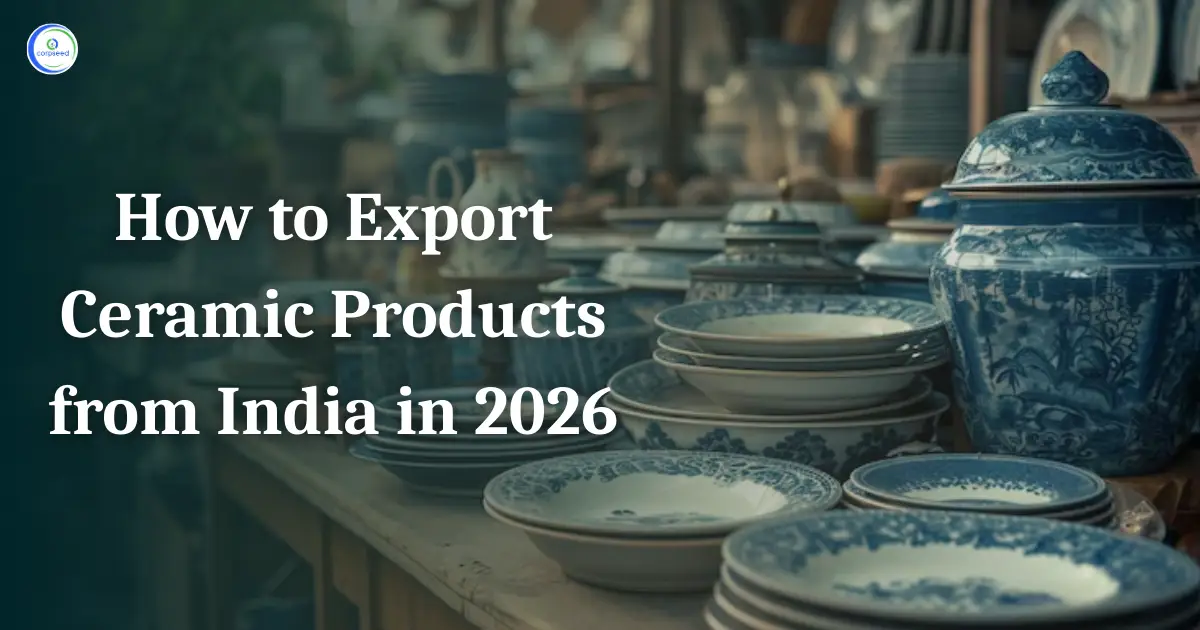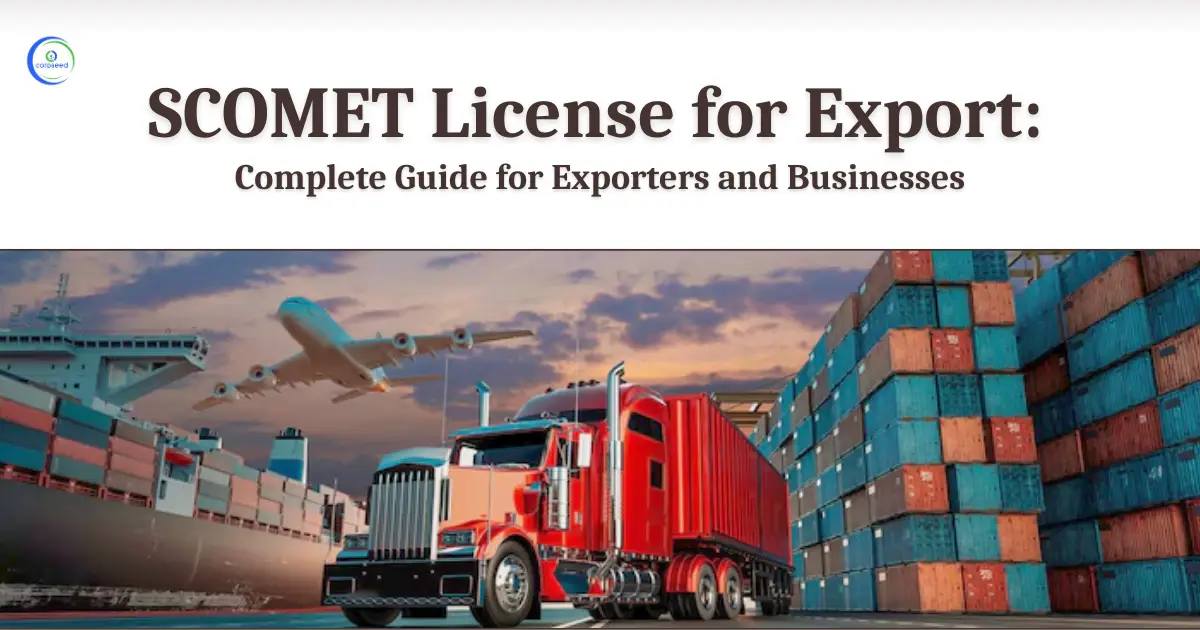The Directorate General of Foreign Trade (DGFT) recently released significant updates to the export authorization framework related to SCOMET (Special Chemicals, Organisms, Materials, Equipment and Technologies) items. The amendment, which is effective immediately, amends paragraph 10.10 of the Handbook of Procedures (HBP) 2023, with the aim of streamlining and clarifying the rules for Stock & Sale export authorization. These changes reflect DGFT’s efforts to strengthen export controls while enhancing flexibility for Indian exporters and their foreign stockists.
Table of Contents
- What is Stock & Sale Export Authorization for SCOMET Items?
- Key Changes in the Stock & Sale Authorization Framework for SCOMET Items
- Applicability and Scope of the Policy
- Application for Export to Stockists Abroad and Transfer to End Users in Specific Countries
- In-principle Approval for Export to Stockist, Sale within Stockist Country, and Re-export to End Users
- Post-reporting for Same Country Transfer and Re-export to Pre-approved Countries by the Stockist
- Application for Re-export to Other Countries (Other than Pre-approved)
- Repeat Order Cases
- Annual Reporting on Inventory of the Stockist and Transfers/Re-exports
- Impact of Amendment on Exporters and Stockists
- Conclusion
--------------Blog Contact Form-------------
What is Stock & Sale Export Authorization for SCOMET Items?
Stock and Sale Authorization is a specific permission granted under the DGFT license system that allows Indian exporters to ship SCOMET items in bulk to a foreign entity called a “stockist”. Stockists hold exported goods and then sell or transfer them to final end users in approved countries in their home country or abroad. This authorization simplifies the export process by enabling bulk shipments, which can later be distributed by stockists without the need for separate export licenses for each transaction. SCOMET items include controlled substances, materials, and technologies that require strict oversight due to their sensitive nature and potential military or dual-use applications.
Stock and Sale Authorization ensures that these items are exported responsibly, with clear end-use and end-user tracking. Under the DGFT licensing regime, exporters will have to submit a detailed application with supporting documents, including end-user certificates and corporate evidence linking the Indian exporter to the foreign stockist. The authorization applies to various categories of SCOMET items but excludes technology transfers under any category, including some highly sensitive categories such as categories 0, 3A401, and 6. This policy balances trade facilitation and national security concerns by regulating bulk exports of sensitive goods.
Key Changes in the Stock & Sale Authorization Framework for SCOMET Items
Several significant amendments have been made in the updated policy of DGFT, aimed at clarifying the scope, application process and compliance requirements for stock and sale export authorisations under the DGFT licensing framework.
1. Applicability and Scope of the Policy
a. ‘Stockist’ refers to an entity abroad to whom the SCOMET items are originally exported by Indian Exporter. The stockist entity should be a subsidiary/principal (parent) company abroad of the Indian exporter. The stockist entity could also be an affiliate of the Indian Exporter, Indian or Foreign Original Equipment manufacturer (OEM)/ Electronic Manufacturing Services (EMS) ¹ /Contract Manufacturer (CM) ².
1 For the purpose of this policy, EMS is defined “as a business service provided by companies that specialize in the manufacturing, assembly, testing, return, repair and sometimes design of electronic products for OEMs. These providers are responsible for assembling electronic components and devices based on the customer’s specifications, and the services are often provided at a cost-effective price compared to setting up internal manufacturing facilities.”
2 This could be considered based on additional documents submitted by the Indian company, such as AEO certification, contract/agreement between the Indian company and its Original Equipment Manufacturer, etc.
b. Export shall be permitted from the Indian company (applicant exporter) to ‘Stockist’ based on an End Use declaration from the Stockist, through the specified End User Certificate (EUC) for 'Stock & Sale' purposes,
Note: IMWG may relax the provisions of (a) and (b) above in certain cases, considering the description/end use/end user of the item.
2. Application for Export to Stockists Abroad and Transfer to End Users in Specific Countries
The exporter shall submit application in prescribed proforma (ANF-10B) along with the following documents from the stockist:
- Documentary proof regarding the corporate relationship between the Indian exporter and stockist,
- End-use/End-user Certificate from stockist entity abroad in Appendix-10j (iii),
- List of countries (in the EUC) to which the items imported from India would be exported by the stockist,
- Purchase Order(s)/Invoice(s) or a document in lieu thereof,
- Technical specifications of the product(s),
- Copy of Internal Compliance Program (if applicant exporter/ stockist entity has one)
- Copy of AEO certificate (in case of OEM/CMS/CM).
- Undertaking on the letterhead of the firm duly signed and stamped by the authorized signatory stating that, “The applicant exporter declares that subsequent to the issuance of export authorization, if the licensee has been notified in writing by DGFT or if they know or has reason to believe that an item may be intended for military end use or has a potential risk of use in or diversion to weapons of mass destruction (WMD) or in delivery of their missile system, the exporter would not be eligible for Stock & Sale policy for export of that/those item(s) and would apply separately to DGFT for a fresh authorization in terms of regular policy”. Action shall be taken against the exporter under the FT (D & R) Act, 1992, for any mis-declaration.
- Copy of corporate registration/business registration or certificate of incorporation of stockist entities in the destination countries.
3. In-principle Approval for Export to Stockist, Sale within Stockist Country, and Re-export to End Users
Once the application is reviewed, IMWG grants authorization for bulk export to the stockist and in-principle approval for re-export to specified countries. Key points include:
- Stockists do not need any additional authorization to sell in their home country or re-export to approved countries.
- Re-exports must comply with the stockist’s national export controls.
- Transfers across customs or economic unions do not count as transfers to the same country and need to be considered separately.
4. Post-reporting for Same Country Transfer and Re-export to Pre-approved Countries by the Stockist
An Indian exporter holding a DGFT license will be required to submit detailed reports on all transfers made by stockists in the same country and re-exports to pre-approved countries. Reports should include:
- End User Certificates from all ultimate users
- Bill of Entry into destination countries for re-exports
These reports are due within three months of such transfers, ensuring continued regulatory oversight.
5. Application for Re-export to Other Countries (Other than Pre-approved)
For re-export or transfer to countries not covered by the initial in-principle clearance by the stockist, the Indian exporter will have to obtain fresh clearance from the DGFT. The application must include:
- End-use/End-user Certificates from all supply chain parties
- Purchase orders or invoices
- Technical specs if product modification occurs
IMWG evaluates these requests based on thorough end-user verification, maintaining tight control over sensitive exports.
6. Repeat Order Cases
Repeat orders to the same stockist for the same SCOMET items and subsequent re-exports to approved countries will be fast-tracked and considered by the Chair of the IMWG without full committee consultation. This streamlines the approval of established export relationships.
7. Annual Reporting on Inventory of the Stockist and Transfers/Re-exports
Annual compliance reporting is mandatory. Exporters must submit by January 31 each year:
- A statement of exports from India to the stockist
- Transfers made by the stockist to end-users
- Stockist’s inventory as of December 31
Failure to comply may result in fines or cancellation of the DGFT licence. Stock and sales authorizations are valid for a specified period, and any extension or revalidation follows the procedure set forth in the Handbook of Procedures.
Impact of Amendment on Exporters and Stockists
These amendments provide clarity and operational flexibility to exporters while strengthening accountability for SCOMET commodity exports. Broadening the definition of stockist allows Indian exporters to partner more effectively with global OEMs, EMSs and contract manufacturers, reflecting the reality of the modern supply chain. It can enhance competitiveness by enabling streamlined bulk exports under a single DGFT licence. However, the updated framework imposes stricter documentation and reporting requirements.
Exporters must keep diligent records of stock transfers and re-exports, submit timely reports, and ensure compliance with the conditions associated with their SCOMET licence. Failure to comply risks fines or revocation of export authorization, which may disrupt business operations. For stockists abroad, the policy clearly defines responsibilities regarding end-use certification and compliance with their country’s export controls. The possibility of obtaining in-principle approval for re-export to certain countries reduces the administrative burden, but any transfer outside the approved areas requires additional DGFT approval.
Conclusion
The DGFT’s updated Stock and Sale Export Authorization framework for SCOMET items under the Handbook of Procedure 2023 brings significant clarity and flexibility. By expanding the scope of stockists and refining application and reporting procedures, the policy aligns with global trade practices while upholding strict export controls. Exporters holding DGFT licenses should follow the revised guidelines carefully, ensuring proper documentation and timely reporting to maintain authorisation. These changes strike a balance between facilitating smooth export operations and safeguarding national and global security concerns related to sensitive materials and technology. Indian exporters and their foreign stockists can leverage the new Stock and Sale Authorization framework to strengthen international partnerships and optimize export supply chains while fully complying with regulatory requirements. It will be crucial for all stakeholders involved in the export of SCOMET goods to stay informed about these DGFT license updates to ensure seamless trade and regulatory compliance in 2025 and beyond.
This portion of the site is for informational purposes only. The content is not legal advice. The statements and opinions are the expression of author, not corpseed, and have not been evaluated by corpseed for accuracy, completeness, or changes in the law.
BOOK A FREE CONSULTATION
Get help from an experienced legal adviser. Schedule your consultation at a time that works for you and it's absolutely FREE.



_Corpseed.webp)


_Rules,_2025_Corpseed.webp)


